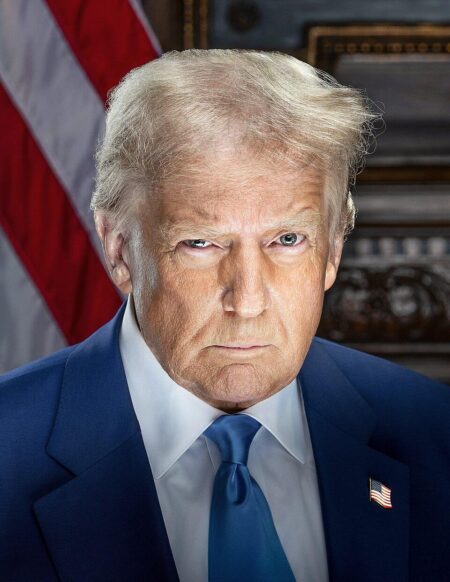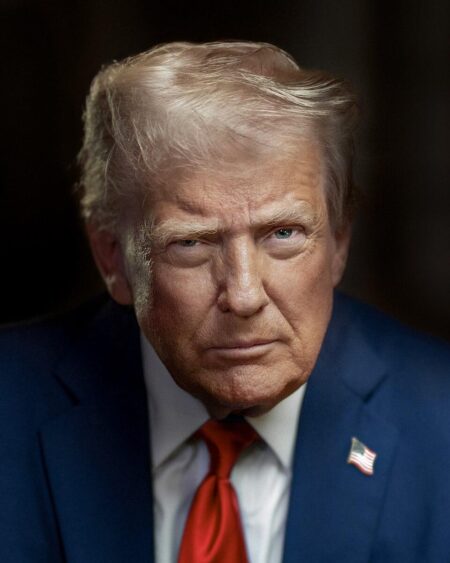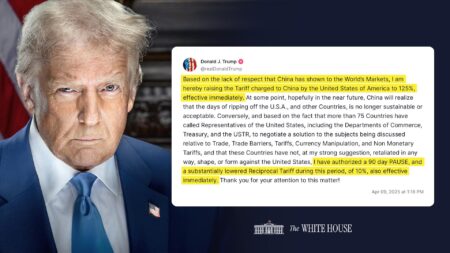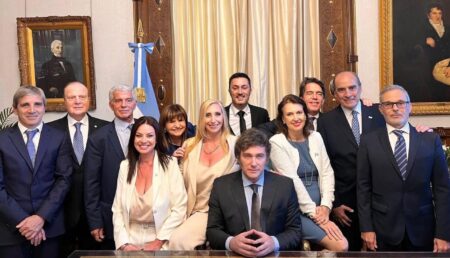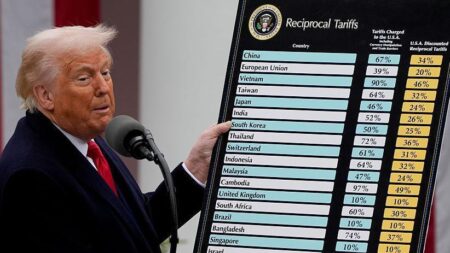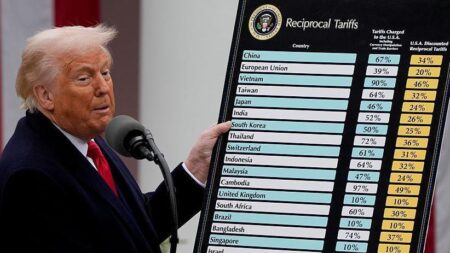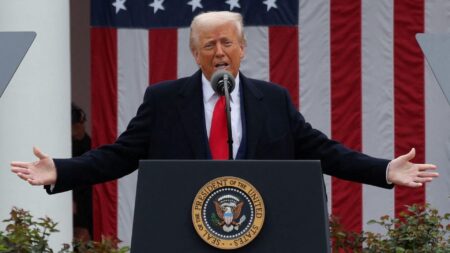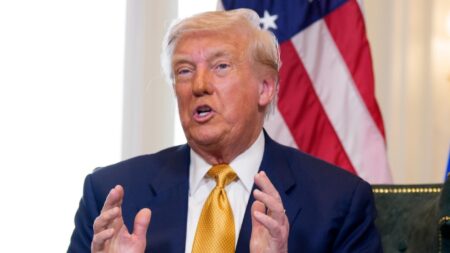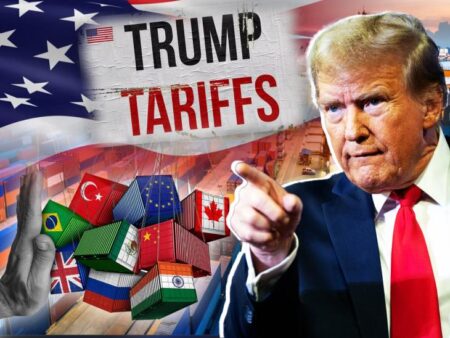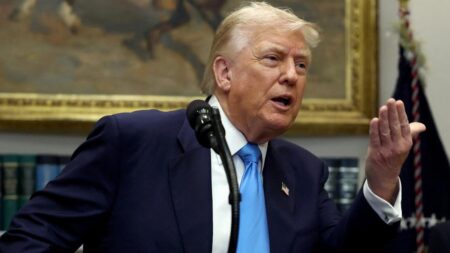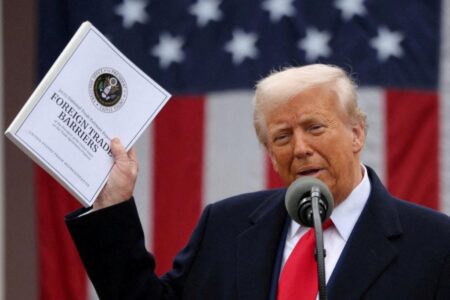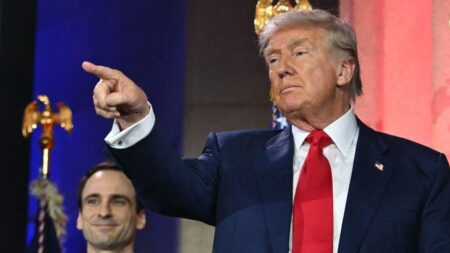China has eagerly embraced the chance to celebrate Brazilian coffee just as tariffs introduced by the Trump administration take effect. This savvy move highlights shifting trade dynamics amid ongoing U.S.-China tensions, providing a significant boost to Brazil’s coffee exporters
Browsing: tariffs
Former President Donald Trump reportedly hit Indian goods with a hefty 50% tariff, striking back fiercely at India’s continued purchases of Russian oil and escalating the trade tensions between the two nations, CNBC reports
Former U.S. Ambassador Nikki Haley passionately called on Washington to maintain its strong ties with India, even as Trump threatens tariffs on Russian oil imports. She emphasized the vital importance of a powerful Indo-American alliance in shaping global strategy and ensuring security
Former U.S. President Donald Trump has once again issued a stark warning to India, threatening severe tariffs over its continued purchases of Russian oil. This move escalates tensions amid global sanctions and growing diplomatic pressure, Reuters reports
India has fired back at former President Donald Trump’s recent tariff threat, highlighting that the US still trades with Russia despite imposing sanctions. The Economic Times uncovers rising tensions as global sanctions and trade conflicts heat up
A Colorado manufacturer, proudly crafting products right here on American soil, is facing a tough battle against soaring costs fueled by tariffs on imported materials. Despite their goods being made in the USA, changing trade policies are tightening the squeeze on their pricing and testing their competitive edge in the market
President Trump’s latest order removes tariffs on aircraft, orange juice, and energy products imported from Brazil. This bold step aims to ease trade tensions while maintaining pressure on other sectors, Reuters reports
The Milei government is confident about clinching a tariff agreement with the United States, hoping to strengthen trade relations and spark robust economic growth, Buenos Aires Herald reports. Negotiations are ongoing
Trump ramps up trade tensions with fresh tariffs on Canada and unveils unexpected trade moves. Stay tuned for live updates on the unfolding impact and worldwide reactions!
Canada’s Finance Minister Mark Carney expressed deep disappointment over U.S. President Donald Trump’s tariffs, warning they could seriously harm North American trade relationships and drag down economic growth, The Wall Street Journal reports
President Trump hits back with new tariffs on imports from India, Brazil, and South Korea as a critical deadline approaches, ramping up trade tensions and raising alarms about the global economy. Get the full story on nbcnews.com
President Trump stuns the market with a staggering 50% tariff on Brazilian imports, accusing them of harming U.S. businesses. This bold action intensifies trade tensions and highlights his fierce dedication to protecting American industries
The U.S. has dramatically increased tariffs on Canadian goods from 25% to 35%, highlighting urgent concerns over fentanyl trafficking, Reuters reports. This bold step marks a significant escalation in trade tensions between the two neighboring countries
Trump’s trade deal with the EU paves the way to cut tariffs and turbocharge exports, promising lower prices on everyday items for American consumers. Experts weigh in on how this could impact wallets nationwide
Former U.S. President Donald Trump has slammed Brazil with hefty tariffs and sanctions, striking back fiercely at the legal troubles surrounding former leader Jair Bolsonaro. This bold action has further escalated the growing tensions between the two nations, reports France 24
Thursday Briefing: The New York Times uncovers President Trump’s aggressive tariffs on Brazilian imports, escalating trade tensions and raising alarms over potentially severe economic fallout for both nations
Trump’s tariffs on imported goods have given Canadian and Mexican chocolate makers a delicious advantage over their US competitors, Reuters reports, as soaring costs leave American producers struggling to keep up in the global market
Trump-era tariffs are sending shockwaves through Brazil’s citrus industry, causing export delays and squeezing growers financially. These trade barriers have crushed demand and pushed costs higher, threatening the very foundation of the region’s agriculture
Former President Donald Trump has just unveiled a “massive” new trade agreement with Japan, aimed at turbocharging U.S. exports and strengthening economic ties like never before. Stay tuned for the latest updates on tariffs and the major industries poised to gain!
India has extended duty relief on select UK imports like pastries, pet food, and cosmetics-while deliberately excluding sensitive sectors. This smart strategy aims to boost trade relations without putting domestic industries at risk, reports Deccan Herald


